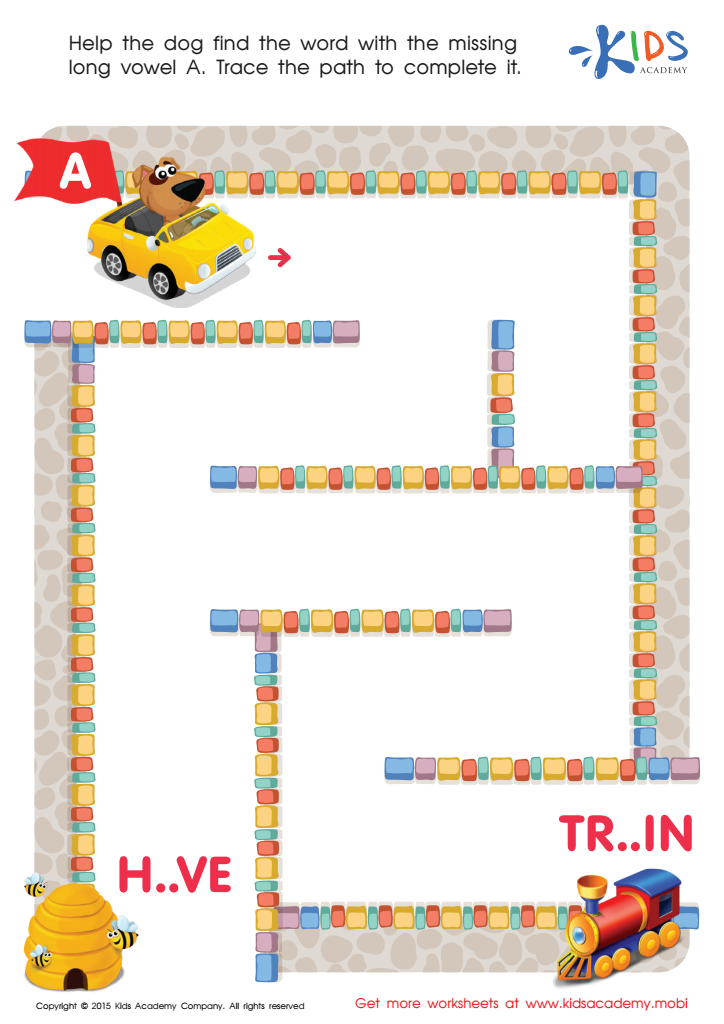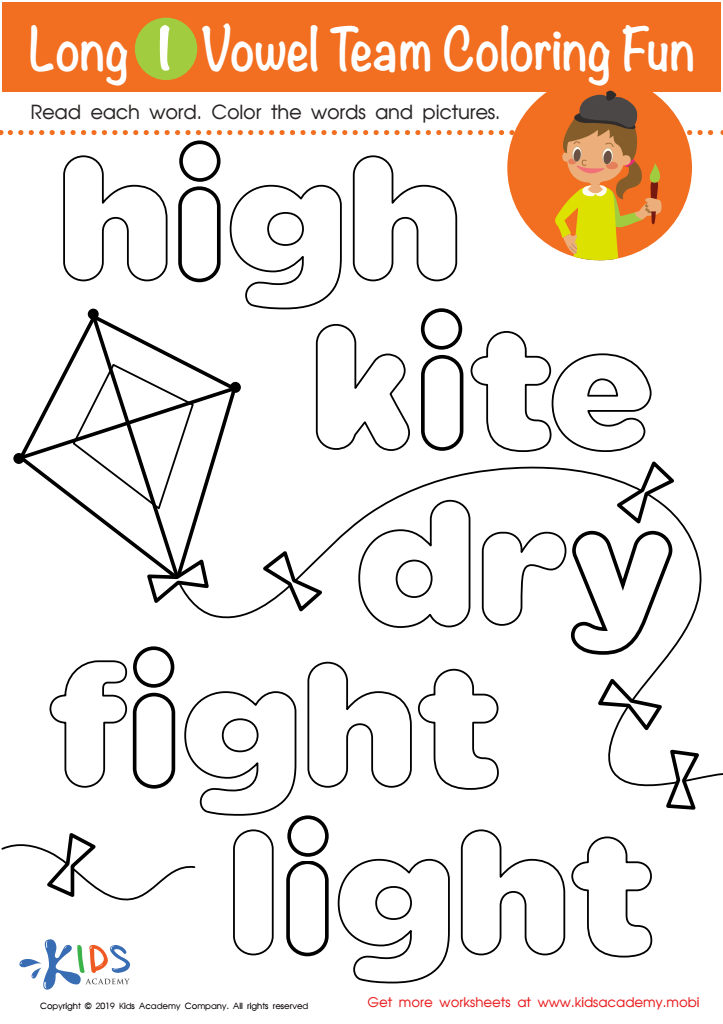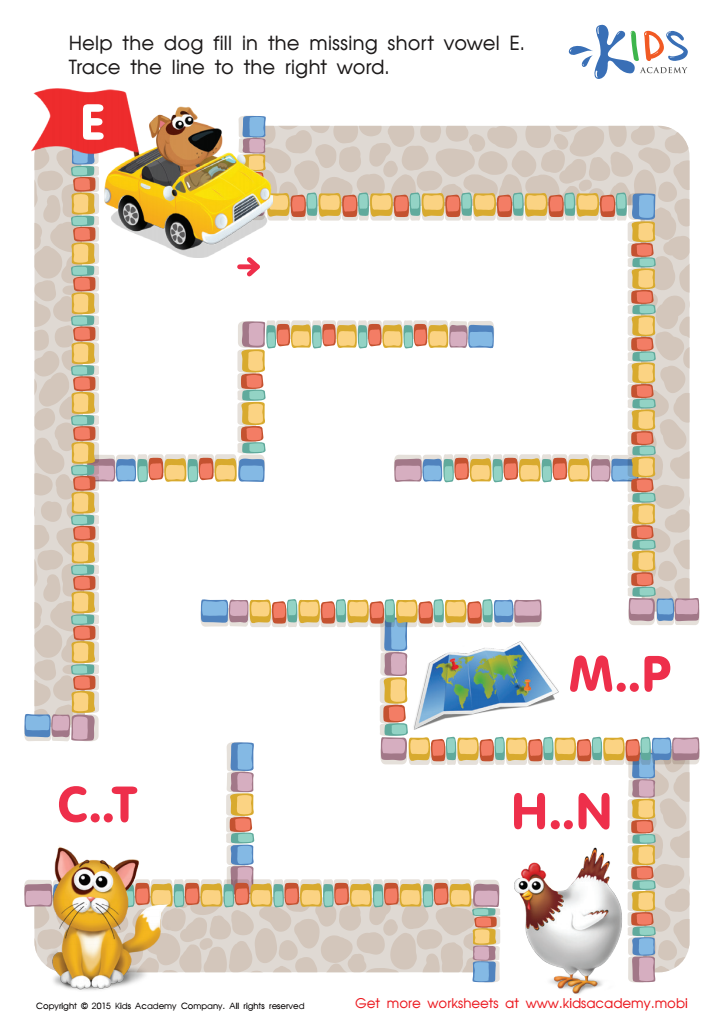Word identification Phonics Worksheets for Ages 3-6
4 filtered results
-
From - To
Unlock the power of early literacy with our engaging Word Identification Phonics Worksheets designed specifically for children aged 3-6! These printable resources focus on developing essential phonics skills by enhancing your child's ability to recognize and identify words. Each worksheet is crafted to be fun and interactive, incorporating vibrant illustrations and activities that capture young learners’ attention. As kids practice word identification, they'll strengthen their reading and comprehension skills, laying a solid foundation for future learning. Whether at home or in the classroom, these worksheets offer a delightful way to boost your child's phonics proficiency and instill a lifelong love for reading!


Long Vowel Sound A Worksheet


Long I Vowel Team Coloring Worksheet


Short Vowel Sound E Worksheet


Phonics and Word Recognition: Assessment 1 ELA Worksheet
Word identification and phonics are crucial components of early literacy development for children aged 3 to 6. During this formative period, children are laying the building blocks for reading and language skills that will serve them throughout their education and beyond. Understanding phonics— the relationship between letters and sounds—empowers young learners to decode words, promoting confidence and independence in reading.
Parents and teachers should care about phonics skills for several reasons. Firstly, mastering phonics helps children recognize and spell words accurately, which enhances their overall communication abilities. This foundational skill fosters a love for reading, as children begin to understand that they can decode written language, explore stories, and access information on their own.
Moreover, phonics instruction aids in combating reading difficulties. Early exposure to effective word identification strategies can help identify potential learning challenges, allowing for timely intervention. This early support can significantly impact a child's long-term educational journey by preventing frustration and promoting literacy proficiency.
In essence, by focusing on word identification and phonics, parents and teachers are investing in their children's future success, ensuring that they acquire essential literacy skills necessary for lifelong learning and personal development. Encouraging engagement in these skills is vital in nurturing confident and capable readers.
 Assign to My Students
Assign to My Students














